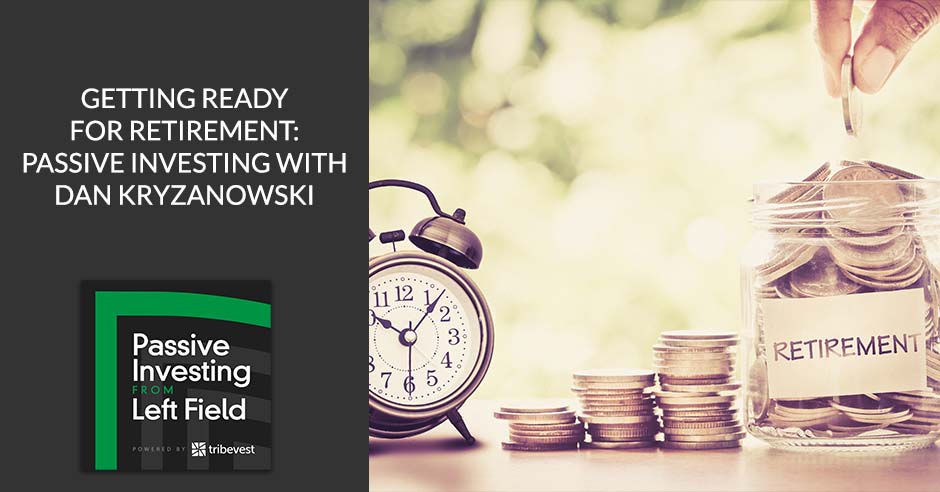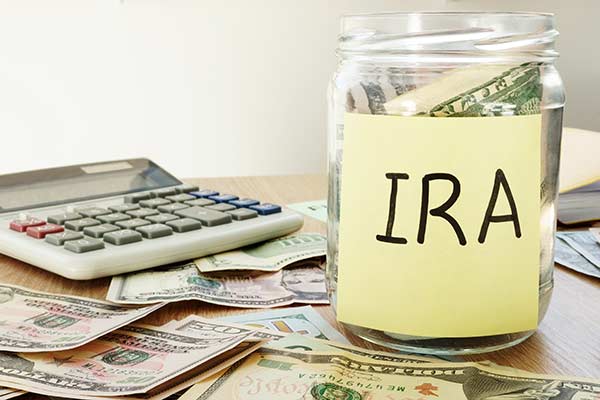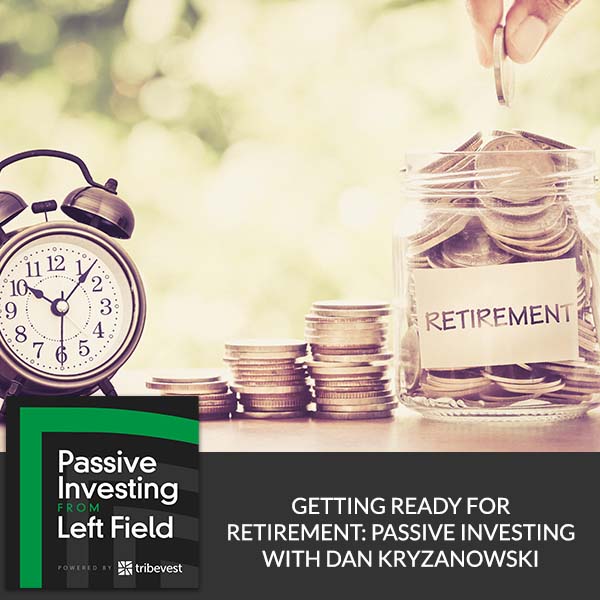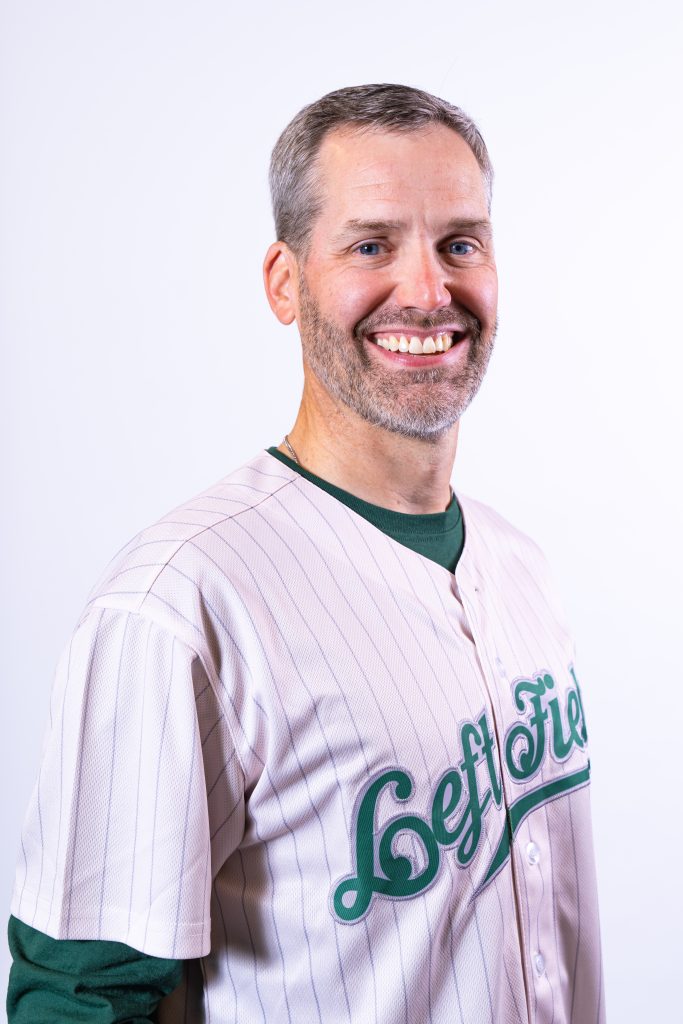
Everyone wants to have a comfortable retirement, but the problem is how to get there. Passive investing is one tool you can use to ensure you spend your retirement years doing what you love. Jim Pfeifer and Left Field Investors talk passive money with Dan Kryzanowski, Advisory Partner at BV Capital. Dan discusses how to make your 401k work for you, investing in an Self Directed IRA or 401k, and why there are good opportunities in passive real estate syndications, including industrial triple net leases. Join this discussion and learn some great tips to prepare for your retirement.
—
Listen to the podcast here:
Getting Ready For Retirement: Passive Investing With Dan Kryzanowski
I’m very pleased to have Dan Kryzanowski with us. He is a capital raiser, equity owner, and LP investor, generating double-digit yields and lower taxes via commercial real estate. He’s also an Advisory Partner at BV Capital, a private equity company offering direct access to syndication investments.
—
Welcome to the show.
It’s such a pleasure. It’s great to be with you all.
The first thing we usually do is I would like to hear your story. How did you get into real estate, passive investing, and all of your financial journey?
Simply like many folks on the call, I grew up in small-town America. I was W-2 for a while. I happened to go to a name-brand school, so it was a, I would say, a pretty typical path. I was maxing out my 401(k) “doing the right thing” per se. Oddly enough, about several years ago, we had our first taste of Austin. I met my wife in Mexico through GE Capital. I found myself here, and from here, I was doing all things that airport real estate, which is pretty cool when you get down. You get to spend the globe, and that’s your pipeline. It made it a lot of fun. What I realized from this experience is that there’s more than just being a typical 60/40 stock-bond investor.
This would be, I would say, my first inclination that this world exists. Fast forward a few years later, I’m a co-best man at a wedding. The gentleman with who I was a co-best man said, “What do you do?” Then, he shared with me that he flips houses. I said, “That’s great,” and then he said, “15%.” I said, “That’s better,” and then he said, “Did you know you can use your retirement dollars to invest in this and that?” That was the light bulb moment. That was the kickoff in addition to doing the equivalent of what is now known as crowdfunding in bars and restaurants. That is what got me into this space.
You said you had your light bulb moment when he said you could do it with your retirement account. Why was that the light bulb moment?
Once again, I was a simple kid growing up in Scranton, Pennsylvania, always with a head and heart for the little person. Being on wall street did not make full sense for me, and especially trading, A, B, C, X, Y, and Z, pick your ticker, this did not fit, and I know so many folks either blindly have the retirement there, or their advisor, their guy, or their gal has them in some strategy and they have no idea what it is and it’s not impactful.
Particularly, for the folks that with their liquid account, they are investing in a second house, a female entrepreneur, you name it. It’s amazing, especially for us folks over 40. Retirement’s not that far away, nor is it when retirement is going to come due and we can take it out without penalty, so me, being a little left-brain and growing up in the finance space, I said, “This is tremendous. This is a $1 trillion opportunity.” One way or another, this has been my mission to evangelize this message.
Talk about that message then. Are you talking about just the 401(k)/self-directed IRA space? Are you talking about real estate? What’s the message?
I would say any takeaway from here is for folks both as investors or if you are doing your deals, remember that you, your family, and those in your network can use your retirement dollars, your old 401(k), or your IRA to invest passively in deals. I wanted to make that big and bold. Then, otherwise, the way that I’m wired, I prefer something to be tangible in my community who I’m with, and a lot of folks feel that deep down inside and maybe have been misguided or frankly marketed a different way to think about their finances.
For all of our Realtor friends, anybody that’s without W2 employees, a solo 401k is a much more powerful product.
Let’s dive into the way you can use your retirement differently. First of all, can you talk about the self-directed IRA versus maybe a solo 401(k), what the differences are and what’s better for the typical investor? I know these are a lot of questions, but how do you figure out what investments should go into your retirement and what investments are better off, maybe outside of that qualified plan?
First and foremost, the self-directed IRA was legalized in the 1970s, many politicians have it just to sign out FYI. The most amazing experience is somebody that has been W-2 for a while or, let’s say, you retired, you are in a new position or company. You can tap into those old retirement dollars. Most likely, you are going through a custodian. When I hear that in my mind, it seems a little old or a little stodgy at times, but it’s another stop on your train where you are moving your money from your old company to call it a fidelity or a rollover IRA to a self-directed IRA. From here, with the exception of yourself or your linear family, you can more or less invest in whatever you want. That’s a broad rule for all sorts of self-directed accounts.
It’s still tax-deferred, right? You are not taking it out of your 401(k). You are rolling it over into a new IRA or something like that, so it’s still tax-deferred. You are not losing the tax status.
Absolutely. It’s another stop on the train, but let’s take that question the other way a little bit. I’m sure some folks who are on the headlines, Peter Thiel of the FinTech fame out on the West Coast, received headlines because he chose to do a Roth conversion. What is that? In layman’s terms, if you want to give the IRS your money today versus tomorrow, they will take it today. Whatever your view of the future maybe, but particularly if you have confidence in yourself and what you may invest in, such as real estate, which has been great for multiple decades now, you can do what’s called a Roth conversion, so pay taxes on. I like to call it a little seed now and not the big forest in the future.
Another type of product is the solo 401(k). What I love for all of our realtor friends, anybody that’s 1099-S either naturally or by choice, or husband and wife team without W-2 employees, this is much more powerful of the two products. I asked a moment ago, once again, not only from contributions where you are not limited to the call the $6,000 or $7,000 in an IRA or the $19,000 or $20,000 if you are in a day job of your 401(k). This is in the high $50,000, and it’s roughly $63,000 or $64,000 if you are over 50 years old.
It’s extremely powerful, especially if you have a good ongoing cashflowing business that, once again, you and your spouse are self-employed. You can also borrow against it up to $50,000 so as long as you pay yourself back over five years. What I love about it is I can have two separate checking accounts, one for pre-tax and one for post-tax, as we talked about, versus in the self-directed IRA, where you will need two unique accounts, one for pre-tax traditional and one for post-tax Roth.
If I have a 401(k) and it’s just an old 401(k), it’s sitting with the old company I used to work for or maybe I rolled it over and my financial advisor is managing it but it’s all invested in the market, what do I do with that? Am I rolling that into a self-directed checkbook IRA? Am I rolling that into a self-directed IRA with a custodian? Am I rolling that into a self-directed solo 401(k) or an EQRP? What am I doing here?
All else equal, if you have a qualified self-employed income, which in the very non-technical term the government likes to say is doing stuff, meaning you are a one-man consultancy or a husband-and-wife team. You drive Uber a little bit on the weekends. Guess what? You qualify to open a solo 401(k), which decently, the self-directed IRA is a much more powerful account.
I know you mentioned the acronym EQRP, and there are a few others like the individual solo 401(k), in my view, and we have talked to other legal beagles on this, they are effectively the same product. It’s a checkbook control by default. There’s no custodian involved. You are effectively the manager of your shadow trust. You manage it. Once again, the rules, no life insurance, no collectibles, not yourself or your linear family, and you probably have to stay away from cannabis still at the moment. Everything else in the world is in play.

Secondly, in the self-directed IRA land, I know there’s a big shop out of Ohio. I won’t mention specific names for better or worse, but there are a lot of the older custodians that are more tenured and have more legacy out there. It’s a little heavier on the paperwork. The transactions don’t move as quickly. Generally, they are not checkbook control. Let’s pause here. What’s checkbook control? As it sounds, you have access to your money 24/7 to invest in what you want when you want. You do not have that with a custodial self-directed IRA.
Now, with the likes of Rocket Dollar, and in full disclosure, I’m an advisor and investor and spend time with Rocket Dollar, ALTO is another, I call them new kid on the block, the IRA product is checkbook control. How is this done? It’s an IRA LLC model. To preface this, it’s fully legal. Somebody took liberties with not even a headline or footnote to imply that it may not be. It’s still fine, but what it is here is that there is a custodian in an IRA, legally, you need a custodian in the background, but the IRA says this LLC entity is a good asset. In their eyes, the sole asset that goes in, and then you, as the investor, have the checkbook control very similar to a solo 401(k).
To go full circle on the offering, once again, with my ties to Rocket Dollar, and I would share RocketDollar.com/Learn is an amazing knowledge base to learn everything that we are talking about now, this gives you the opportunity, and I say this in a very specific order, to have a checkbook control self-directed account, and thereafter, you make the decision if it’s the solo 401(k) or if it’s a self-directed IRA.
You said that you have to have some business income to do the solo 401(k). If I’m a passive investor generating cashflow investing through my LLC, does that qualify?
Unfortunately, no. Passive income, collecting a rent check, day trading, once again, the government does not consider this as “doing stuff.” The true rule of law is the intention to consult, so I know some folks are thinking, “I’m probably going to get out of my W-2 this year. I like the solo. I’m going to stand something up. I’m going to be a consultant. Now, it’s always tough to get that first client, but I’m pushing for this.” This is going to be your intention either as your main business practice or a solid part-time. In good faith, you can then open the solo 401(k).
Talk about UDFI and UBIT. What do those mean? I know it has something to do with leverage inside your investment. I have heard that you might be exposed to it in a self-directed IRA, but you might not be in a self-directed 401(k). Talk about that a little bit.
I will preface because I know those that are reading are passive investors. I will share that any deal that I have looked at for UBIT or UDFI, regardless if it’s in my solo 401(k), and I do have an old Roth self-directed IRA, it has not impacted my judgment to invest in a deal or not. Also, even if there is a hit of tax switch. I go to a weekly real estate meetup. Frankly, this has never come up where somebody says, “I got burned. I did not expect it. I had a notable hit on my taxes.”
This is more of a headline that certain folks push out there, and once again. I’m going to refer folks to the knowledge base because we can probably talk about this legal beagle for twenty minutes, boring folks here, but at a high level, UDFI is Unrelated Debt-Financed Income, and what is this is when an SDIRA obtains leverage from debt with a non-recourse loan.
I will pause here and say the solo 401(k) is exempt from UDFI. There’s also UBIT too. The final thing, and it’s not to confuse, but since we are on the topic, also realize there’s also UBIT and UBTI, and I will share the headlines. UBIT is Unrelated Business Income Tax, and this is the tax itself. That’s applied by the government on this type of income, and then UBTI is the income itself that’s subject to taxation.
I have written 40 checks. I have probably been in and out of twenty-plus deals already myself. It has never come up to consideration because you have three buckets. One is your piggy bank checking account or your liquid account, and for more savvy or tenured investors, there are different things with depreciation, etc., capital gains, potentially capital losses, and not saying you want them in real estate but offsetting that. You think about it in your liquid account.
It’s the Roth IRA that you truly want to grow like a rocket ship because you already paid taxes on day one.
Secondly, it’s going to be your pre-tax traditional. Once again, you want this to grow as much as possible, and then ideally, you want to take it out when you are at the lowest tax percentage or portion of your life, and then separately, it’s the Roth IRA that you truly want to grow like a rocket ship because you already paid taxes on day one. Thinking in terms of these 2 or maybe 3 buckets and saying, “Is this good for my personal liquidity or is this good for my long-term when I either have to pull out a big bucket of money in 20 or 30 years and pay taxes on it, or ideally, even a bigger bucket of money that I don’t have to pay taxes on?”
When I’m looking at whether I’m going to do an investment in my solo 401(k) or I’m going to do it out of my regular bank account, I look at the tax advantages, and if it’s tax advantage real estate, I usually prefer that not to be in the self-directed qualified account because then you don’t get those tax advantages because you already have tax advantages. What kind of assets would you put in your IRA? Would you first try to do lending that does not have tax advantages anyways or do you still do tax advantage investing in your IRA because you are still going to get the returns?
I always look at the nominal return you get, and then, you start including taxes. I would always preface to say that you never want to put yourself in a liquidity position where you are borrowing or maxing out your credit card because you put passive income in a deal, especially if your retirement is sitting in some bond fund. Please never do this. That’s the spirit of accreditation, and I do suggest all sponsors should have a healthy conversation. A full disclosure, I’m licensed under BV Capital. It’s a questionnaire. It’s more conversational, but we take it very seriously because we don’t want somebody getting in a situation where it’s unhealthy for them and their family.
With that said, in terms of which bucket of money per se, I always think of things as, “Is it a K-1? Is it 1099?” For example, my buddy who I referenced previously who flips houses has never used a bank. He uses personal, but it’s 1099. What does that mean? Let’s say he pays 8%. It’s like if I had an 8% checking account, I’m going to pay on that.
Let’s say I also am getting a pref only deal real estate and it’s paying 8% but you are getting a K-1. Let’s say if I had $100,000 in each bucket, all else equal, I would want the latter or the one that’s coming out of the K-1 to come from me personally, and then once again, the one with 1099, I want coming from my self-directed IRA or solo 401(k) because you know you are getting that nominal return but you are not paying the taxes on it.
That’s well said because you can figure out the buckets by what kind of tax report you are getting. That’s great. One last question on the IRA qualified account thing, and this is the big one. If you are a real estate investor, why don’t you just cash out your 401(k) or your IRA? You are going to pay the taxes anyway. The question is, do you think taxes are going to be higher now or later? That’s one part of it.
The other part is the penalty. The penalty is only 10%. I’m pretty confident I can make up that 10% because once I take it out and I start investing in real estate, I’m probably never going to pay tax again. To me, it would look like cash it out, invest in real estate, and you will end up in a better spot. I say that and I have not done it, so that’s the question. Chad Ackerman is one of the founders of Left Field Investors and he did that. The courage was awesome and it’s working out for him so far, but why should we not do that or why should we?
Chad’s story is great. I know other folks here in Austin, Texas is saying it’s the new land of plenty, and some folks maybe did not even finish college or that in their early twenties did that even with $50,000 in their 401(k), and it has been a very wise move. Once again, I feel the people that are reading this are passive investors. A lot of us are doing other stuff. I do think in terms of diligence and concentration, sure, there might be a bit of luck with it.
If investing in asset management, meaning real estate asset management, is not all part of your day-to-day, I don’t know if I would say, “Let me pull out of my retirement because I feel that I’m smarter than folks.” A great personal example I will give, and I always love to share what’s the worst thing you did or what mistake you can teach me.
When we were pregnant having baby bliss, it was a beautiful sunny January day in Austin, Texas. This house almost looked finished, and a good friend, very trusted, and a financially conservative CPA said, “Talk to talk to this person. Do a three-month hard money loan.” I’m like, “This is easy money. My son will be born. Mazel Tov. It will be great.” Fast forward three months later, I got a baby, but I don’t have my money back, but I was still in baby bliss, so it did not matter. We do another three months, and then it’s like, “This is not looking too good,” and then I had to learn the laws of Texas. Things are not always what they seem.

Long story short, after losing a few bits of remaining hair that I have, I got $0.70 on $1 but was this a real-world MBA. Why do I share that? Even now, I don’t know if I would fully trust myself to pull all this money out in case I was a GP in these deals. I do think it’s a factor of your time. If you are not fully in this, I will caution against this.
Secondly, there is some benefit to having IRA money. Why do I say that? As you, once again, cannot invest in your personal residence and a beach house where grandma goes to, or in your kids’ PropTech startup for example, and then selfishly, as you are trying to get to know other folks that you may want to invest our GP partner with, it helps to have this retirement money.
A lot of us jokingly, and I’m sure we saw this in California, I looked around and there were 4 or 5 people I have invested with. Why? There are two reasons. One, people say like and trust. We can have 100 likes on LinkedIn or Facebook after this, but trust is going to be when money moves when something transacts. That’s part of it.
I do think in many respects that check should move before you think who you may want a GP with otherwise. The IRA gives you some of that buffer knowing you can’t touch it for, I assume you are 40 years old, another twenty years out, and once again, worst case, and I hate saying the worst case, but in the IRA, if you lose the money, it’s pre-tax money anyways. You are not getting a write-off, but you are not then paying it on the outside.
I hate to always share or talk about worst-case scenarios, but it’s decent to bring up whereas in your personal life, if you cash out now, you have your 10% penalty and you are paying taxes on it, so a lot of folks might say, “I had a pretty good year working my W-2. I made $100,000. I’m going to take out $250,000.” There’s $25,000. Guess what? Your AGI went up to $350,000.
You got to consider all that, especially if you know you are going to leave your W-2 and assume you have a big bucket of money to do something with because your final point on making this thing is you are losing the leverage of having a W-2. I’m playing out a few personas and scenarios. I know the folks have done for better or worse, but ultimately, I like to have a little bit of the optionality to get to know folks with my money.
I have not had the courage to take all my notes. I did take a little COVID withdrawal, but that was it, so I would like to pivot here because I know that you have talked to over 500 sponsors in eighteen months completely. What did you learn and where did you find 500 sponsors? This is great. I would love to dig into that a little bit.
In some ways, it’s pretty easy. One, it depends on how you are wired. I was already a passive investor. I learned the concept of Rocket Dollar, which I was a checkbook control and self-directed provider. I was an advisor and investor before the company was even incorporated. I decided to commit eighteen months as an employee. Number one is we came out of the womb for reference. Henry Yoshida, our founder, Goldman Sachs, bought his previous company. I have that in the back of my mind. At the same time, out of the gate, I visited sponsors that would sit around the circle on a family office, or I call it a larger pension show, and I realized that’s super sync with self-directed IRAs.
Maybe some individuals and some of the sponsors saw the light or maybe further smaller checks and their sidecar funds, but where the meat came in, and these names are in no particular order to the likes of Joe Fairless, Michael Blanco, Jake and Gino, Adam Adams who is out in Denver that’s done a podcast shift, and Hunter Thompson. I was a road warrior. Other groups too that might be more amazing. Mike Doroski does a great job on the West Coast. From here, I said I was trying to check off for $500, but I met with folks, the quick handshake, but that’s frankly not enough for me. I want to get to know you more, so this was a follow-up call.
Once again, I probably slept as much as our newborn at the time and such. That is how I did it, but there was a lot of thought to it too. This became the advent of our knowledge base. The benefit also, I concurrently spoke to probably 500 folks either opening a solo 401(k) or were considering it, and this became the scratchpad for what became an award-winning knowledge base that shares education out in the world. Brian Briscoe is a great example from Four Oaks. I know Brian TGIF. It’s tough to say meeting the Marine in diapers per se, but we were very green when we got the benefit of knowing him.
He and his partners, this is a great example of folks that we saw, and I have continued to engage with. Some, I have invested with, and others, I have had the benefit to be on their webinars and such. I have gotten to know very strong 1 to 200, and then for one reason or another, I have invested probably with 10 to 20 relatively smaller checks. Of course, purposely, I’m diversifying. That’s the how.
If we become a hyperinflationary economy, will it make sense to own real estate? Definitely.
What I learned is to bet on the jockey and not on the horse. There were some lessons learned. It’s very difficult when there’s one partner or one GP, especially if somebody is coming up de novo out of the gate. I think you need a few partners there. Frankly, wherever I have lost money or had the most sleepless nights, it’s been a one-man shop out of the gate or somebody without support. That was a pretty good telling sign.
Secondly, looking at the terms, there are some folks now that I may not invest with, because even somebody out there, I thought this was a little bit slimy, but much like we hear 80, 20, 70, 30, which is the natural progression as you go through a waterfall, they were taking the higher number and they are trying to pull a fast one-off somebody. Not many folks, but like anything, when there’s a quantity out there, you have to look through the quality.
The final point I will share going full circle on our conversation for those of you that are also sponsors or considering it, those that have shared the simple one-sentence did you know you can use your retirement dollars to invest in my next deal tend to get a 10% to 20% of the raise done? I joke, “You get to take Friday off because you are done,” and the best example here is for my Texans. I will refer to a Texan company.
Let’s say you have a buddy that worked for Dell, retired, but has three kids at SMU, Rice, etc. If he or she is not liquid, but they love your deal. They want to get engaged. They see that you took out your 401(k). You started buying real estate. They are like, “I want to get involved. I’m excited with you now.” You are like, “I have got three kids in college,” but you have that million-dollar 401(k) from Dell, so you are like, “Great. I can tap into it.”
Sponsors that have on a regular basis share this message and exude at this at 10% to 20% on a very consistent basis, and I felt there were certain personas, avatars, and such that went behind this that we would engage more and invited to our podcast. A webinar takes us a fair amount of time to stand up. We did unique webinars with them and shared multiple stages across. I put myself out there very humbly with the message did you know, do you know, you can use it, and let’s do it.
I would like to also talk a little bit about what you are doing, which you said was industrial triple net deals. You called it a bond wrapped in real estate. Can you talk about that?
It’s better than bacon-wrapped dates or whatever they call it down here in Texas. Much of self-storage was off headlines until recently. I have been a fan of storage. I have been an investor. I have raised money for storage before. When you look at the top five lists, industrial is there. It’s just not the one you talk about, and then also conceptually, folks can think of a hotel, hospitality, or multifamily. It’s where I lived out of school or where I rented. It’s such a residential, of course. Industrial is, I like to say, everything else, but it’s a big everything else. It is where all your goods, frankly, are made, where they are moved to where the last mile is.
A great example of a property is Loomis. It’s like a big Fort Knox on the El Paso border. It’s Department of Defense certified. It’s a whole lot of metal with money inside. That’s pretty cool. That’s under the industrial umbrella. Then, triple net means that the tenant is paying for taxes, insurance, and maintenance. They are paying for everything, which is a fun fact here for folks that rent. Implied within your rent, you are probably doing that or at least the taxes. I know folks are like, “I’m renting. I’m not buying. I’m never going to buy.” You are paying the taxes. That’s a complete side note.
What I like about industrial is a strong tenant. It’s going to be a mission-critical mislocation of this building. What do I mean by that? Let’s pick on our California friends. A little California tech startup is going to move from California to Austin. They can do that. Wherever they are at, it’s not a big deal. Let’s say you have 100 plus employees and 6 plus buildings. You make a patented widget. You, personally, meaning you, the tenant, put in X million dollars into this space. You are probably not going to pick up and go anywhere, especially when you are locked into a fifteen-year contract with rents every five years baked in.
I share all that contextually that these are properties very less likely to go anywhere. Once again, let’s talk about the worst-case scenario. The stuff hits the fan. These properties can either pay their bondholders or they can pay rent to make their widget make more revenue, or they are going to do the latter, which means if you are the owner of the building, they are going to pay you first. This is what industrialism is.

We talked about the risk side. Now, let’s talk about the return side of it. The nice thing, once again, is cashflow is like a bond because it’s rent. It’s a single tenant. It is not like a multifamily or even a self-storage, or especially hospitality. You are like, “We got one tenant. They are going to pay us this much per square foot or per building.” In some ways, it is relatively easy to cashflow that out. Then, a final point I will share particularly when you have this in a portfolio, like anything, it’s the equivalent of having ten double A or triple A properties here. Even if one backs out the space, they probably put so much into it that somebody would want to get in to release it.
I’m a passive investor. You do passive investing as well. How do we evaluate that kind of deal? I know how to look at multifamily, and as you said, I have lived in apartments, in a house, and I have used self-storage. I don’t think I have ever been to an industrial facility, and if I did, I certainly did not know what I was doing there, so how do I evaluate the deal and make sure it’s a good investment for me?
First and foremost, once again, the sponsor, the track record, or who operates the property too, what you are going to see, much like you are starting to see now in self-storage, in the next few years, folks are going to claim it’s their deal. They are probably raising capital, so be very cautious. Ask who the operator is behind it. I know that’s the rule of thumb for every asset class, but especially here, because it’s not common knowledge.
Secondly, you do have to look at the business more. Multifamily is housing. Hotel is not a factor of Hilton or Marriott per se. It’s more a factor of a pandemic, natural disaster, etc. Whereas an industrial, it’s two things, and first and foremost, it’s going to be on the tenant side, and a lot of these are either publicly traded or have some very, I would say, public audited financials out there.
The companies we look at, BV Capital, are a good number of multi-billion-dollar market cap companies. You get a good idea of what’s going on, and once again, my analogy paying rent and paying bondholders their equity, they are going to take care of themselves to make more widgets and more revenue first. That’s one way I would say to look at it. The second way is like anything and where it is.
I grew up in Scranton, PA. You are up north. Especially here in Texas, it’s an easy answer, but we have Mexico. The political side is not going anywhere. We have Military. We have a lot of people moving here, which means more stuff and more goods are made. It’s a very extremely business-friendly state, so all these factors combine for the making and moving of goods.
Also, we have the Gulf, of course, with the ports. These are some pretty good macro checkmarks. Much like Scranton, PA, where I grew up, we have I-81, the Turnpike, New York and New England. I would also say this is a good place for industrial because of its location close to MSAs. There are different ways to look at that from your diligence, but first and foremost, this is more looking at the tenant.
We have been talking. This whole time, a lot of our conversation has been about different ways to invest in real estate and why real estate is great, so why are these companies selling the real estate?
They are not selling, and I love your analogy with Chad before. It’s like, “Should you take everything out of your 401(k) and just do it yourself? This is your retirement.” It is the same deal. Folks are concentrated on making a widget for the oil and gas space. They are quasi-tied into the government. There is a showroom for people in the trades and the construction space. They are not real estate folks, and a lot of them are not franchised. It’s not like McDonald’s, which I thought was a great movie. It’s a real estate play. It’s not a burger play.
I think folks are accepting. Could they buy the building? Probably. Once again, I’m sure they are pretty savvy CPAs too. The larger the company, it makes sense frankly not to be a real estate owner. Over time, if we become a hyperinflationary economy, may it make sense to own? It could, but now, based on either, the price would probably go up with every first of zeros at the end of everything.
The perception might be, “Why don’t the companies own the building themselves? Do they own it and then sell it back?” No, not as much. They just think of them very much as the tenant.
In the near term, I don’t think they want to worry about that. Plus, it gives optionality, and come renewal time or negotiation time, there’s always that potential to move, which is pretty powerful versus saying like, “Here’s where we are for the long-term.” Once again, for the back of the paper napkin, it may be better for them to own, but their head share and managing it, frankly, a lot of companies are focused on their primary business.
When you do these deals, you said the owner does not sell the property, so are these new properties that you buy and then you find a tenant to move into, or are these already existing industrial buildings where the tenant owns it and they sell it to you and lease it back?
It’s more towards the latter that we may buy from an existing industrial owner where a company XYZ is the tenant and will probably remain the tenant. There could be spec. That’s not something we purposely focus on. A lot of times with these industrials, because there’s a fair amount of built to suit one way or the other, is that you are coming armed with a company with a strong track record of audit financials that are possibly publicly traded or the equivalent thereof that says, “We need a building here. We are building our campus. It’s not just a headquarters.” We are building with them in mind, and if there are certain things on the new build to commit to or when it’s being refurbed, the tenant is going to put in for that.
The perception might be, “Why don’t the companies own the building themselves? Do they own it and then sell it back?” Not as much. They think of them very much as the tenant that’s going from one real estate shop to another. For example, we have a portfolio. We own six. It will probably get up to twelve-ish by the end of 2022. Fast forward four years later, we will sell this to a small REIT. We are already getting people on the door that say, “I want Texas. I want industrial. I have a nine-figure check. Can I buy from you today?” I would like to say yes, but we are going to honor our investors and continue to cashflow monthly to them.
You talked about the exit. What’s the upside potential or the proforma? Are these similar to multifamily homes where you hold them for five years and then sell them?
Yeah. It is similar. At any time, you can do a quick flip. Especially now, like anything, if you don’t have to redeploy the money, now’s a great time. If this is your retirement, bang out and get out. Life’s great. Redeploying is a challenge because then you are a fellow buyer from that standpoint. In multifamily, you see a lot more quarterly distributions because you have to say, “It’s not even just COVID, but there might be a little pause. Something can happen. I might have to hold back or lower the pref a little bit.” This is like you paying your office rent per se or your mortgage. Industrial is the same way, so in turn, you can pay your investors, and it is in some ways pretty predictable. The sale price will hope to be a little bit higher, but it’s pretty predictable proforma.
We covered a lot of different things here and I appreciate it. The last question I ask on the show is what’s a great podcast that you listen to that’s real estate-related, business, or otherwise, and you can mention more than one if you are really into podcasts.
Try not to play favorites with the other ones that I’m going for here. We had a great discussion in California. We are going to continue this conversation. It’s Ben Kogut with HJH Investments. He’s here in Austin with me. He’s a true gentleman and a scholar. If you have the opportunity to meet Ben, please do. Please try to get on his podcast. It’s high in demand, but also, to have a conversation. He’s tremendously kind in a servant leadership spirit but has tremendous knowledge. He has an Acton MBA, which is our entrepreneurial MBA down here, in addition to the real estate stuff. His DNA is very unique.
Outside of this, Masters of Scale, Reid Hoffman, Founder of LinkedIn. I like to joke begrudgingly that I thought of LinkedIn. I’m a fellow Penn guy, and I even did it with my fraternity guys. We were like, “What grad school? Where are you living? What’s your interest?” I never put ones and zeros behind it. I’m kicking myself on that.
A really good one is with Andreessen of Netscape fame. He talks about these amazing ideas. It might be the same idea every four years like the Olympics, but it might be the fifth iteration or it finally hit in 2016. There’s no fault to the founders or anything before, but I find these very uplifting. It’s good decision points to hear too. I love what you shared about Chad. It’s like, “If we are going to go, this is going to be my full livelihood balls to the wall. Who are my mentors?” You are getting great lessons. A lot of these folks were in our shoes and were relatively small before they became name brands. It’s extremely tangible, so that’s a good one.
That’s awesome. Thanks for sharing those. If listeners want to get in touch with you, what’s the best way to do that?

LinkedIn is fantastic, and share that you heard Jim and Dan having a great. I check it daily. I’m a LinkedIn content creator, so I’d love to continue the conversation that way. Also, use DKRYZANOWSKI. That will get you a whopping $50 off of a Rocket Dollar account. You will find the price and the service and everything to be fantastic, and before that, I always like to lead with education, so RocketDollar.com/Learn is a great place on the self-directed side, and then BVCapitalTX.com will give you some insights into Texas risks commercial real estate.
That’s excellent. Thank you so much. This was jam-packed with information. I appreciate your time and thanks for being on the show.
That’s awesome. Take care.
—
That was a good conversation with Dan. One of the things that I enjoyed about chatting with him was the idea that, remember, you can use your retirement funds differently. It does not have to be a 401(k), investing in stocks, mutual funds or bonds. There are other options out there. We talk a lot about that in our community, but I think it’s important for people to recognize that if you have an old IRA or you separate from your employer. If you have these funds, you can use them for other things. You can use them for real estate.
I also thought that it was interesting he did not think UDFI was that big of a deal. That’s the part where you pay taxes on the part of the investment that uses leverage. He has not had any issues with it, so that’s a good thing. Surprisingly, I did not think that it would be a non-factor, but to be honest, I never had an issue with it either in my self-directed IRA and I have now transferred that to an EQRP. Maybe I did not need to do that, so that’s a question for, of course, your tax professional.
I liked how he divvied up the buckets when you are trying to make a decision like, “Do I invest with my qualified money, which is the self-direct IRA, or do I go to my bank account in the cash in hand?” His deal was if you are getting a K-1 from the investment, the first place you go is your bank account, and if you are getting 1099, the first place you go is your IRA, and I think that’s exactly right. That’s a great way to segregate those out and know which bucket you are going into if you have cash in both places.
Then, when he was talking about sponsors, avoid a one-man shop. I agree with that. We have talked a lot about there being more and more GPs, general partners, on all these deals, and I don’t want someone who has ten GPs on a deal. That’s true, but it’s also true that I don’t want somebody that just has one. I want someone that I know has people behind them, that has a backup, or that has other people helping them out. It makes sense that if something happens to them, the other person jumps in. That made complete sense to me. The only thing that did not make sense out of this is he mentioned something I forget what was better than bacon, and that clearly is not the case because there is nothing better than bacon.
Lastly, we are talking about the industrial triple net. I liked this asset class. It’s becoming more popular. I think it’s good for diversification because you get reliable cashflow. It’s an asset that is backed by a major company. It’s a single-tenant, so that might be a little scary, but if you have vetted the company or the sponsor has vetted them so that they know they are solvent and going to stick around for a long time or they have a committed lease with a business, it seems like a nice way to offset some of the other asset classes that were into more residential stuff dealing with people. Here, we are dealing more with businesses, so I like that. It was great talking to Dan. We are going to keep track of him, see how his stuff goes, and look to the future. That’s it for this time. We’ll see you next time in the left field.
Important Links:
- BV Capital
- RocketDollar.com/Learn
- Left Field Investors
- Four Oaks
- Ben Kogut
- Masters of Scale
- Andreessen Horowitz – Apple Podcasts
- LinkedIn – Dan Kryzanowski
About Dan Kryzanowski
 I am a capital raiser, equity owner, and LP investor, generating double-digit yields and lower taxes via commercial real estate.
I am a capital raiser, equity owner, and LP investor, generating double-digit yields and lower taxes via commercial real estate.
My personal portfolio includes equity ownership in 10+ commercial real estate properties and passive/LP investments in 2,600+ storage units, 1,500+ multifamily doors, and dozens of industrial, infrastructure, and residential properties.
Our sponsor, Tribevest provides the easiest way to form, fund, and manage your Investor Tribe with people you know, like, and trust. Tribevest is the Investor Tribe management platform of choice for Jim Pfeifer and the Left Field Investors’ Community.
Tribevest is a strategic partner and sponsor of Passive Investing from Left Field.








